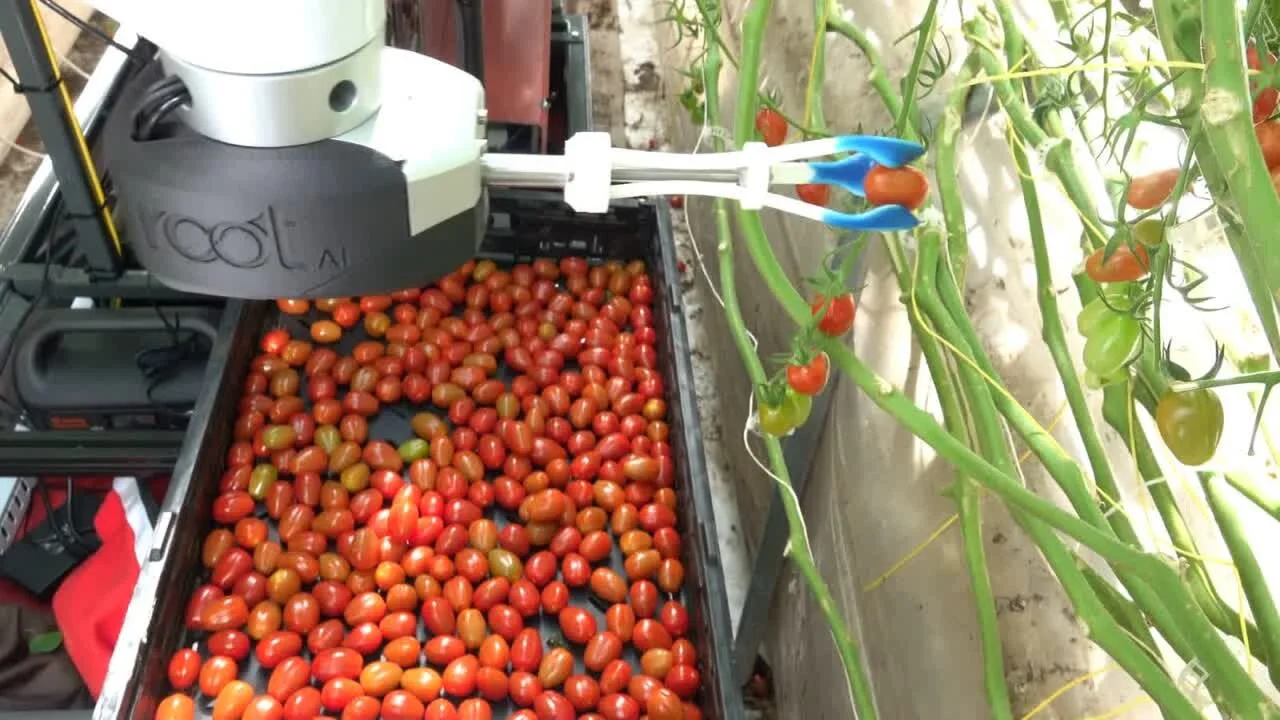AppHarvest Hopes To Build A Garden Of Eden In America's Appalachia
May 15, 2021
Summary
AppHarvest is building out commercial indoor farms in Appalachia.
APPH, which recently went public via a special purpose acquisition company, has seen its stock price collapse on the back of the flight of capital from growth to value.
With revenue growth increasing, the company's next challenge is growing into its valuation profitably.
Photo by IP Galanternik D.U./E+ via Getty Images
AppHarvest (NASDAQ:APPH) is building large commercial greenhouses in Kentucky to primarily grow tomatoes indoors. The benefits of this approach would see the company use up to 90% less water than traditional farms, have the ability to attain harvests year-round, use no chemical pesticides, and attain at least 30x more food per acre than conventional farming methods. Essentially, indoor farms allow modern farmers to carefully control the environment to indefinitely allow for near-perfect growing conditions.
This has brought the future of farming forward, a critical need in a world still facing significant population growth rates while beset by the uncertainties of climate change.
However, while AppHarvest's ESG credentials are undoubtedly strong with the company using recycled rainwater for its circular irrigation system, there remains uncertainty over whether its business will be able to profitably grow commodity fruit and vegetable produce. This would be against a domestic market increasingly dominated by Mexico. Imports of tomatoes from Mexico to the USA grew by 125% from 1.6 billion pounds to 3.6 billion pounds between 2002 and 2017. This subsequent decline in US production of tomatoes is a trend AppHarvest hopes to reverse with its indoor farm in Kentucky. This is able to reach 70% of the US population within a day's drive.
This means produce should not only arrive at grocery stores fresher, but they would also do so with a lower carbon footprint. AppHarvest longs would consider this an important point as consumers become increasingly aware of the importance of the food chain to managing climate change and the damaging impact of pesticide use on the natural environment. For example, surface runoff from farms into lakes and rivers have potentially damaging effects on aquatic ecosystems.
AppHarvest September 2020 Investor Presentation (Source)
While AppHarvest inaugural 60-acre Morehead facility primarily grows tomatoes, the company expects to be able to produce leafy greens and cucumbers in the near future with two new facilities planned for 2022.
Strong Geographic Reach And Improved Revenue Visibility
AppHarvest expects revenue to ramp up materially over the next four fiscal years from 2021 on the back of an expansion of its indoor greenhouses. The company has guided revenue to reach $376 million in 2025, a four-year compound annual growth rate from 2021 of 97%. To achieve this, AppHarvest expects to hit 12 active facilities across Appalachia by 2025. The company also expects to attain greater diversification by expanding into growing other fruits and vegetables.
AppHarvest September 2020 Investor Presentation (Source)
Of course, the main barrier to an investment in AppHarvest would be its ability to scale revenue growth profitably. Capital expenditure in new greenhouses should very well see the company increase total acreage and annual production, but its ability to do this profitably would be challenged by the unique costs of indoor growing. From increased electricity consumption to the use of more skilled and variable labour.
Hence, AppHarvest's focus on robotic harvesting emphasised with its recent acquisition of artificial intelligence startup Root AI points to a potentially profitable scale-up.
Virgo, Root AI's Tomato Picking Robot (Source)
AppHarvest does not expect Virgo to entirely eliminate its use of labour. However, the robot can evaluate crop health, precisely predict yield and optimise overall operations by handpicking tomatoes. This will be a material factor in efficient and profitable operations especially if it can work without a high degree of human intervention.
Indeed, the company expects to reach EBITDA profitability in its fiscal 2023, generating positive free cash flow during the same year. With its shares currently trading at $11.91, AppHarvest holds a $1.12 billion valuation. This would place its forward 1-year market cap to sales at 45x. While still high for a farming company, it is down from 162x when it reached all-time highs in February. Further, this multiple drops to 19x using revenue guided for its fiscal 2022. Investors would be right to be wary about paying almost 20 times revenue for a greenhouse farming company so might be prudent to wait for any further potential pullback in shares.
Turning Appalachia Into America's Own Modern Farm
AppHarvest will not be immune to the gyrations of selling a commodity product to a domestic market that has tilted towards cheaper imports over the last decade. The company will not only have to compete adequately on price with traditional farmed fruits and vegetables, but it would also have to do so with a high-tech setup that while big on ESG credentials offers up avenues for increased costs that could eat into any potential profits.
AppHarvest is a long-term somewhat speculative play on a better more modern method of farming. Hence, just as the green revolution of the mid 20th century saw increased agricultural production worldwide. This more modern ESG-focused method of farming promises to usurp the old order.
This article was written by







